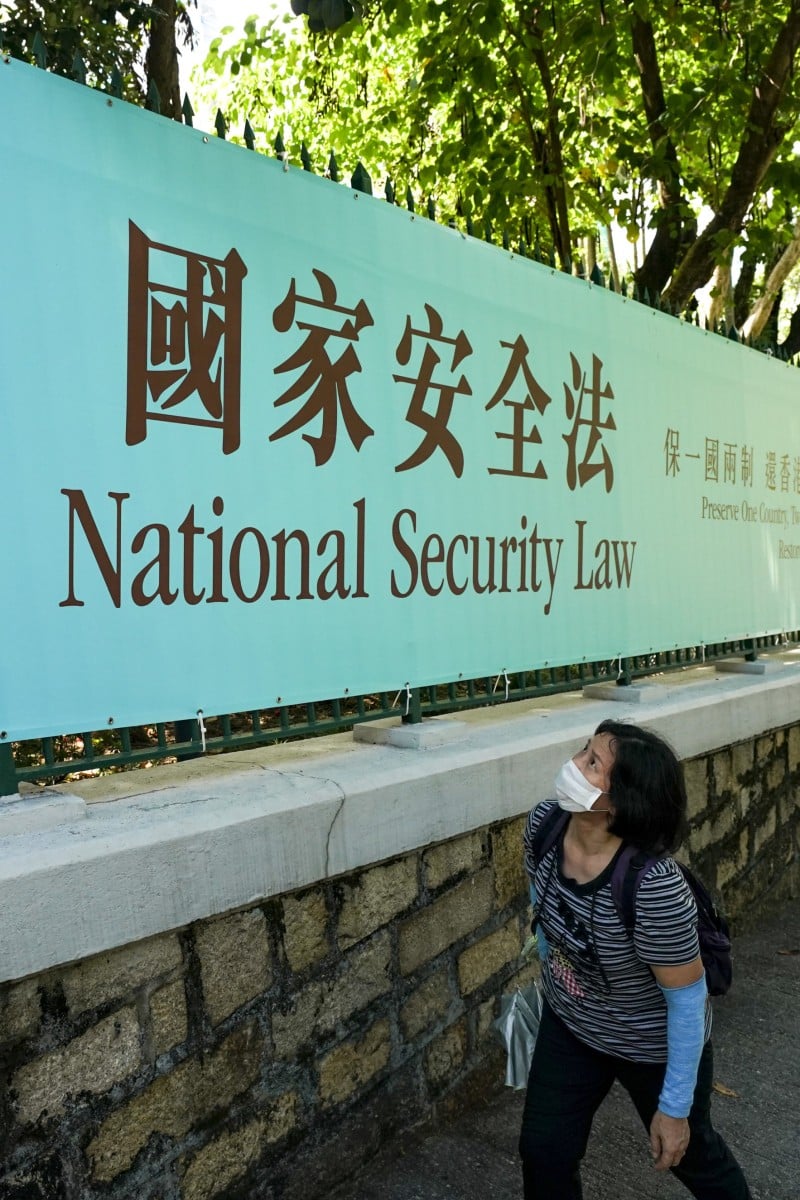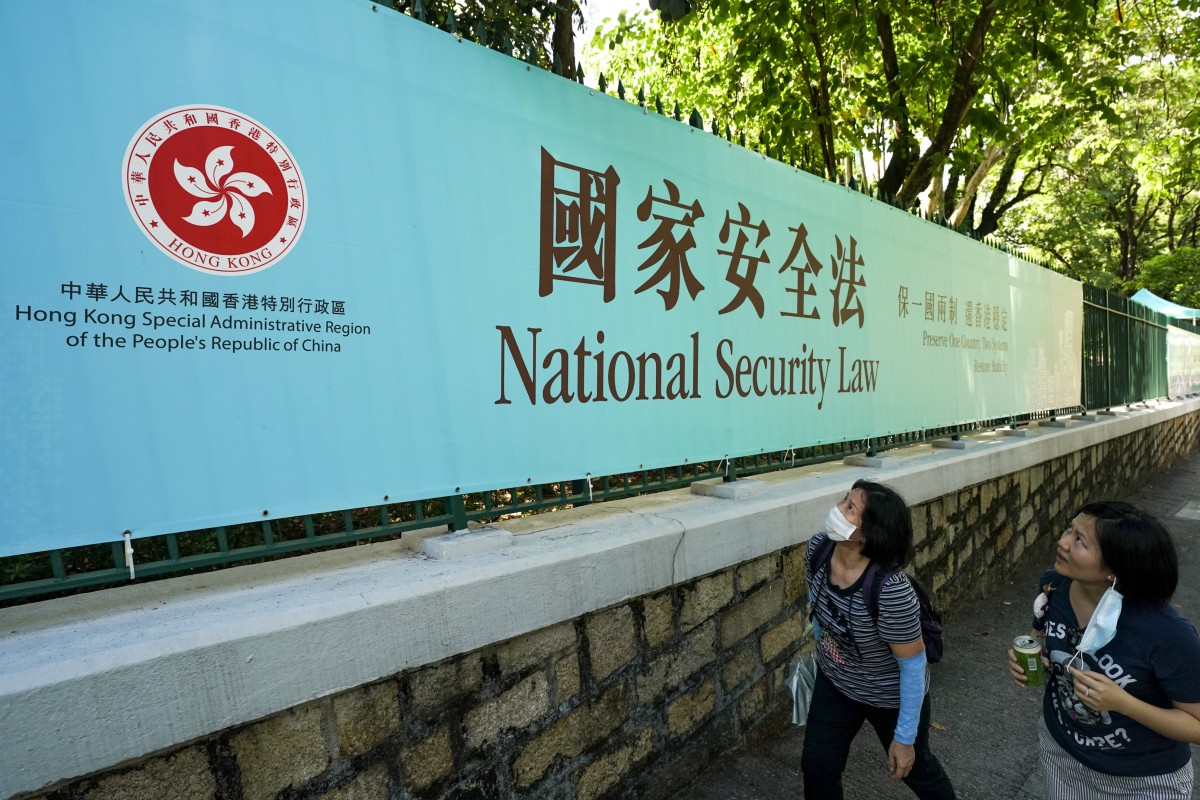
- Residents could be cut off from Google if internet providers obliged to block ‘Glory to Hong Kong’, industry group warns
- Legal experts say foreign tech giants such as Google are unlikely to comply with potential ban on protest song sought by government
 Hong Kong is seeking a court order to permanently bar anyone from advocating the protest song “Glory to Hong Kong”. Photo: Felix Wong
Hong Kong is seeking a court order to permanently bar anyone from advocating the protest song “Glory to Hong Kong”. Photo: Felix WongHong Kong-based internet service providers (ISPs) have expressed concerns that the burden of enforcing a potential ban on a protest song sought by the government will fall on them, while legal experts say tech giants such as Google are unlikely to comply with the pending injunction.
Residents in the city could be cut off from Google altogether if providers were obliged to block “Glory to Hong Kong”, an industry group said.
In an unprecedented move, Secretary for Justice Paul Lam Ting-kwok on Monday filed an application to the High Court for an injunction over the tune, which is regarded as the unofficial anthem of the 2019 anti-government protests against a now-shelved extradition bill.
National education programme to be expanded to cover more than 900 Hong Kong schools
The writ asked the court to restrain people harbouring criminal intent from “broadcasting, performing, printing, publishing, selling, offering for sale, distributing, disseminating, displaying or reproducing” the song “in any way”.
The government said it aimed to target anyone who intended to incite others to separate Hong Kong from the country, or insult the national anthem “March of the Volunteers” by disseminating the protest song, according to an earlier statement.
“Glory to Hong Kong”, instead of the Chinese national anthem, has appeared among the top Google search results for “Hong Kong national anthem”. The issue came to light late last year after a series of mix-ups at international sporting tournaments.
According to Craig Choy Ki, a barrister in the United States, there could be several reasons Google and other US-based companies would ignore an order granted by a Hong Kong court.
The injunction’s aim could be technically infeasible to achieve or tech firms might decline requests based on corporate values such as protection of free speech, he said.
He added that the companies also faced the prospect of being grilled in the US Congress.
“US firms do not only face a business environment,” he said. “Among their political considerations is whether to risk having their CEOs explain to the US Congress why they chose to cater to a request made by [the authorities of] such a small market.”
China has been a bipartisan target on Capitol Hill, with the most recent example being a letter sent by Democratic and Republican lawmakers on Wednesday urging the State Department to bar Chief Executive John Lee Ka-chiu from visiting San Francisco in November for the Asia-Pacific Economic Cooperation summit.
Lento Yip Yuk-fai, chairman of the Hong Kong Internet Service Providers Association, expressed concerns over the prospect of Google sidestepping the injunction.
The order, if granted, would also bar anyone from “assisting”, “causing”, “aiding” or “knowingly allowing” others to commit or participate in the specified acts in relation to disseminating the protest song.
Yip said the mention of “assisting” drew his attention.
Since the national security law took effect nearly three years ago, ISPs in Hong Kong have been asked by law enforcement to block local users’ access to certain websites, including one that published information related to the 2019 protests.
Yip said network providers in Hong Kong could block access to an entire site based on IP addresses, but they were not technically able to see what internet users were looking at on search engines and streaming platforms because the data flow was encrypted.
“It’s technically impossible to rely on ISPs to identify and block specific content. Even mainland China’s Great Firewall can’t do it,” he said. “We can’t maintain access to a website where some content is visible to users and other content isn’t.”
If enforcing the song ban became the responsibility of ISPs based in Hong Kong, internet users might lose access to some or all Google services because providers might have to block access to IP addresses under the website to ensure full compliance, he said.
“Blocking Google will have a great impact on Hong Kong. Can ISPs be spared from bearing the consequences?” he said.
Hong Kong-based lawyer Joshua Chu Kiu-wah, who focuses on technology law, agreed that it was possible ISPs could also be required to comply with the injunction, details of which he maintained would be subject to the court’s discretion.
The Hong Kong courts might have jurisdiction over content accessible from the city, but Chu said it would be difficult to enforce an injunction against content hosted on servers based elsewhere by overseas entities.
“It’s one thing to obtain the injunction, if granted. Effectiveness of the order, on the other hand, is another subject altogether and will largely depend on whether the advocate in question sufficiently assists the court in spelling out the correct terms of the order that will enable easy implementation and enforcement,” he said.
The protest song can also be found on various streaming and social media platforms, including Facebook, Spotify and Apple Music. Different versions of the tune have topped the Hong Kong chart on iTunes after the government announced it was seeking the court order.
Both Google and Meta, which owns Facebook and Instagram, refused to comment. SCMP has also approached Apple and Spotify for a response.
George Chen Shu, former head of public policy for Greater China at Meta, said the injunction would increase compliance costs and complexity for tech giants to remain in the city.
“If [companies] choose to ignore [the pending order], they could face legal consequences, otherwise the government will lose face if platforms don’t comply and the government doesn’t take further action,” Chen added.
The High Court will hear the government’s application next Monday.